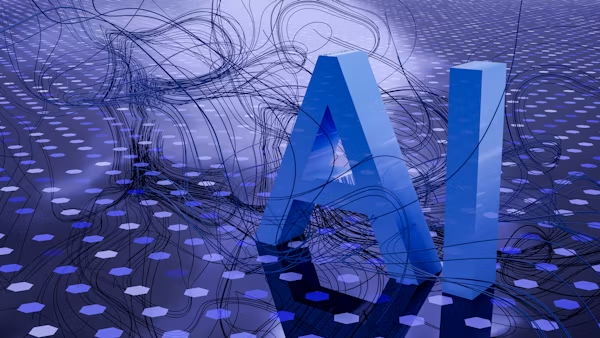The future of AI in the next decade is not just exciting but transformative. From our living and working environments to our interactions with machines and data. Artificial intelligence is becoming even more interactive with our daily lives.
If you thought you had seen the best of AI, just wait. The next ten years will take us into a new chapter of what’s possible.
Let us discuss some realistic but exciting future AI predictions for the next decade, as well as how they may play out.
1. AI Will Be Personal — Like, Really Personal
In the coming years, AI will not just be smart. It will be personalised and tailored specifically to you. Consider AI assistants that understand your daily habits better than you do. I am talking about apps that respond to your mood or energy level in real time, as well as devices that anticipate your needs before you say anything. Whether it is managing your time, your health, or your shopping preferences. AI will transform into a digital representation of your lifestyle.
This type of prediction is no longer science fiction; tech behemoths such as Google Gemini and OpenAI are already aiming for consistent model upgrades.
2. AI Will Reshape Work
We have seen how automation has shaken up the industries. AI in the next decade will go farther than just routine tasks. We discuss creative work, decision-making roles, coding, and design being co-piloted by intelligent AI systems. In general, entire job roles may change, and new jobs will undoubtedly emerge, just as there was no social media manager for the past two decades. The truth is that AI won’t completely replace everyone. Instead, human-AI collaboration will increase for those who know how to work with AI. The new skill you should consider is learning how to work with AI to stay in line with the transformation.
3. Real-Time AI Will Be the New Normal
Speed is everything, and the future of AI will bring real-time everything. Real-time translation and decision-making in healthcare, finance, and logistics, as well as real-time creative generation for marketing and education. The faster AI gets, the more immediate our world becomes.
As a result, privacy and ethics will become increasingly important topics. As AI makes faster decisions, the pressure to make sure it is fair, safe, and explainable will rise too.
4. Smarter AI, Smaller Devices
Today, most powerful AI runs on the cloud. But we will see much smarter models running locally on phones, watches and even glasses without needing constant internet. Imagine AI that can give you directions or health tips or manage your smart home while offline. This shift means more privacy, lower latency, and more accessibility worldwide, including places with limited internet.
5. Human-AI Relationships Will Deepen
As AI gets more human-like in communication, empathy, and emotional intelligence, our relationships with machines will change. Not necessarily in a frightening way, but rather in ways that combat loneliness, promote mental health, and even provide companionship for the elderly or disabled. Chatbots won’t just answer questions; they might become trusted listeners.
This evolution may challenge how we define relationships, identity, and trust. It is deep stuff, but it is coming.
To summarise, these future predictions for AI in the next decade are not just guesses. They are based on the direction we are already heading. From personalised experiences and smarter technology to job evolution and deeper AI-human interactions. The changes will be massive.
So, the big question is: Are we ready to grow with it?
Whether you are a developer, student, business owner, or simply curious about the future. One thing is certain: understanding AI over the next decade will help you stay competitive in a world that is changing faster than ever.
Mathew Otu, a tech blogger with over 15 years of experience, has been sharing insights on emerging technologies, mobile apps, and digital solutions since 2008. He has also contributed to Android app development projects focused on monitoring worker and driver stress levels. Known for his positive perspective, He lives in Nottingham, England, exploring the ever-evolving tech world.




